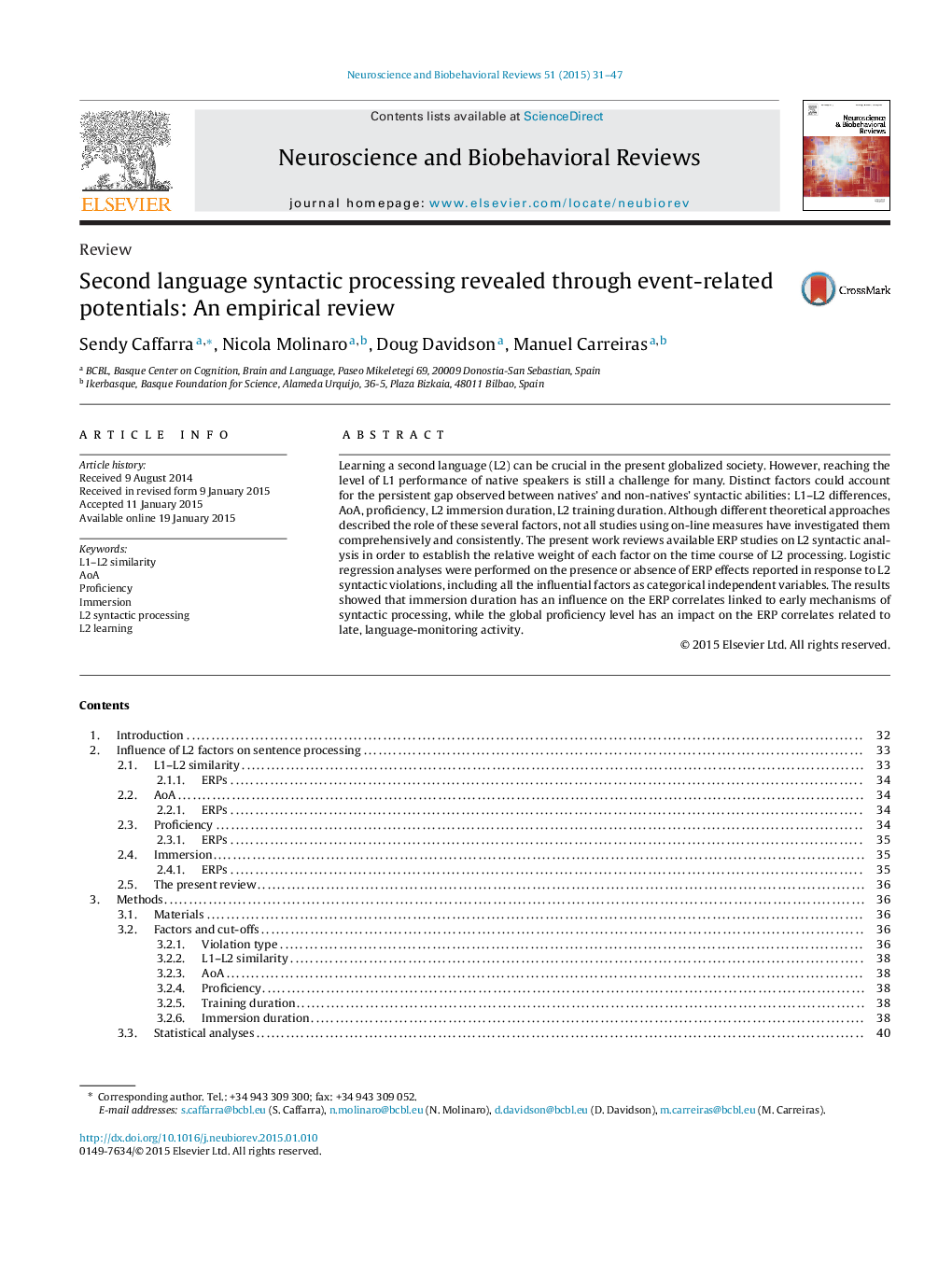| Article ID | Journal | Published Year | Pages | File Type |
|---|---|---|---|---|
| 937673 | Neuroscience & Biobehavioral Reviews | 2015 | 17 Pages |
•Different factors are considered to be influential on L2 syntactic processing.•This empirical review attempts to establish the relative weight of each factor.•L2 factors do not equally influence the reported ERP effects for syntactic errors.•Immersion duration has stronger impact on early syntactic processes.•Global proficiency is more influential on late controlled processes.
Learning a second language (L2) can be crucial in the present globalized society. However, reaching the level of L1 performance of native speakers is still a challenge for many. Distinct factors could account for the persistent gap observed between natives’ and non-natives’ syntactic abilities: L1–L2 differences, AoA, proficiency, L2 immersion duration, L2 training duration. Although different theoretical approaches described the role of these several factors, not all studies using on-line measures have investigated them comprehensively and consistently. The present work reviews available ERP studies on L2 syntactic analysis in order to establish the relative weight of each factor on the time course of L2 processing. Logistic regression analyses were performed on the presence or absence of ERP effects reported in response to L2 syntactic violations, including all the influential factors as categorical independent variables. The results showed that immersion duration has an influence on the ERP correlates linked to early mechanisms of syntactic processing, while the global proficiency level has an impact on the ERP correlates related to late, language-monitoring activity.
